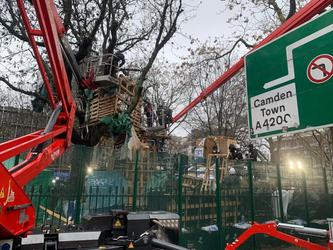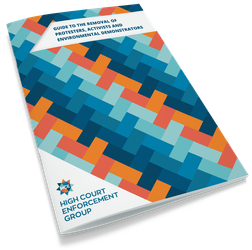Compulsory purchase order webinar Q&A

During our recent webinar on the enforcement of compulsory purchase orders (CPOs), there were a number of questions asked, and we bring you the answers here.
If you would like to know any more about the enforcement of CPOs by a High Court Enforcement Officer (HCEO), please get in touch.
Do you need a writ of possession or any other kind of court order to enforce the CPO?
No, you do not need a writ or court order; the enforcement is undertaken under a warrant.
Who issues the warrant?
The warrant is issued by acquiring authority; that can include the local authority, the Homes and Communities Agency, an urban development corporation or an agency set up to deliver an infrastructure project, such as roads, railways and airports, under an Act of Parliament.
The warrant is generated either by the refusal of the occupant to give possession to the acquiring authority or by the occupant hindering the acquiring authority’s access to the land or premises subject to the CPO.
Could the occupant be made to pay some or all of the eviction costs?
Yes, they could be made to pay from the compensation due if their actions have meant that a warrant needed to be issued. Section 13.3 of the Compulsory Purchase Order Act 1965 states that costs accrued because of the issue and execution of the warrant “shall be paid by the person refusing to give possession, and the amount of those costs shall be deducted and retained by the acquiring authority from the compensation, if any, payable by them to that person.”
Do you have to give notice?
No, we do not have to, and the decision will depend on the circumstances. In the case of a family with children, serving notice would be appropriate, but where the serving of notice would attract protesters onto the site, we would be unlikely to do so.
What powers does the warrant give the HCEO?
The warrant instructs the HCEO to deliver possession of the land to the acquiring authority. The warrant confers the powers the HCEO will need to execute the warrant, including the right to enter the land or premises and to use reasonable force. The HCEO will be wholly responsible and personally liable for the execution of the warrant.
Do the police have to provide assistance?
Police only have the statutory duty to assist when executing a High Court writ and there is no such provision in the Compulsory Purchase Order Act 1965.
We would recommend approaching an HCEO as soon as possible, so that there is sufficient time for planning and for requesting police assistance if it is likely to be needed.
Who is responsible for security after the eviction?
The acquiring authority is responsible for the security of the site after the eviction. The acquiring authority is also responsible for any possessions left behind by occupiers.
However, the HCEO can ensure that the operational plan is prepared to cover the requirements and implementation of security.
What is the purpose of a protester area?
Where there is a protest – often by persons other than the occupants – setting up an area where they can exercise their right to peacefully protest means that they can achieve what they want, while leaving the HCEO and his team of enforcement agents to unencumbered to complete the clearance of the rest of the site.



